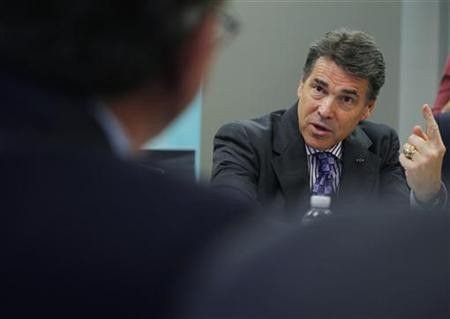Analysis: Big Economic Talk, Few Plans from '12 Republicans

For presidential hopefuls in a campaign that is all about the U.S. economy, the Republican contenders have offered few clear plans for what they would do to get the country's finances back on track.
The candidates generally agree on a basic set of strongly conservative financial principles: they want to cut government spending, lower taxes, reduce regulation and balance the federal budget.
But while the contenders vying for the nomination to run against Democratic President Barack Obama next year are talking about their goals of limited government, they are not yet offering plans for how to achieve them and at times wield rhetoric that worries investors.
There is a lack of seriousness on the Republican side about economic policy, both in their denial of the impact of past actions taken by President (George W.) Bush and President Obama and on offering a consistent and plausible basis for governing, said Thomas Mann, a political scholar at the Brookings Institution in Washington.
Texas Governor Rick Perry raised eyebrows on Monday -- just two days after entering the race -- by saying it would be treasonous if Federal Reserve Chairman Ben Bernanke authorized another monetary stimulus before the 2012 election and said we would treat him pretty ugly down in Texas.
He was criticized even by many Republicans, and jeered on Wall Street, where Bernanke is respected and investors are wary of politicians who advocate interfering with the central bank.
I think Perry did permanent damage to his reputation with the comments about Bernanke, said Greg Valliere, chief political strategist at the Potomac Research Group, which advises investors on government policy.
Most people feel if there was actually a real concerted effort to go after the Fed, it would be disastrous for the markets in terms of global confidence in the United States.
With approval of his handling of the economy at a new low of 26 percent this week, Obama presents a pretty easy target for Republican rivals.
But it will likely be months until a Republican candidate sets an economic agenda.
The thing that would force all of this to be faster, is if Obama were to come out with more detailed specific plans, which would then force the Republicans to come up with both criticisms of those specific plans and then answer with their own, said Ken Fisher, chairman of the asset management firm Fisher Investments.
PROMISING CHEAPER GAS
Perry, former Massachusetts Governor Mitt Romney and congresswoman Michele Bachmann -- the top three declared candidates -- all opposed this month's agreement to avert a government default and raise the U.S. debt ceiling by cutting at least $2.1 trillion in federal spending.
The only member of the Republican field to support the agreement was former Utah Governor Jon Huntsman, who is more moderate but has only 2 percent support in the nomination race, according to opinion polls compiled by RealClearPolitics.com.
Bachmann went further by saying she would never vote to raise the debt ceiling, although many lawmakers in the House of Representatives aligned with the fiscally conservative Tea Party movement cast yes votes for the debt plan.
Romney, the former head of private equity firm Bain Capital, touts his private-sector experience in the real economy and says he would create jobs by cutting taxes and curbing regulations.
Perry says his public-sector experience running the oil-and-gas-rich state of Texas would shape his approach to running the national economy and generating jobs.
Perry will tout Texas' relative economic health as he runs. The state's unemployment rate is 8.2 percent, below the national 9.2 percent, and it has accounted for a third of the jobs created in the United States in the past two years.
Critics point to other statistics: high rates of poverty and those without health insurance.
Bachmann, a former tax lawyer, leads the Tea Party caucus in the House.
On Tuesday, she promised supporters in South Carolina that the price of gasoline would drop to $2 per gallon during a Bachmann presidency, compared with about $3.60 now, even though Washington has almost no say over the global price of oil.
© Copyright Thomson Reuters {{Year}}. All rights reserved.





















